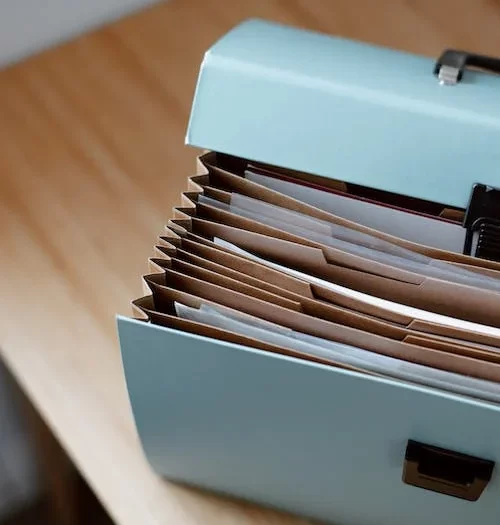The Bureau of Early Intervention within the Illinois Department of Human Services is the lead agency for services for children birth to age three with developmental delays or disabilities and their families in Illinois. The Bureau administers the statewide Early Intervention Services system in coordination with its administrative partners. This page was developed in response to questions received from providers, but is only meant to answer basic questions. Please visit the EI partner pages for more comprehensive information.
- Provider Connections – credentials, enrolls, and provides technical assistance to EI providers in the state
- Early Intervention Training Program (EITP) – provides training opportunities for early intervention professionals in Illinois
- Central Billing Office (CBO) – bills for services and collects payment for services
- Early Intervention Clearinghouse (EIC) – provides families and providers with resources through a lending library and comprehensive website
- Child & Family Connections (CFC) offices – perform intake assessments and coordinate services for children and families in the EI system
- Early Intervention Monitoring Program – ensures compliance with regulations
- Early Intervention brings together educators, social workers, speech and language pathologists, physical and occupational therapists, and more. Find out more about what it means to Be A Part of Early Intervention.
- The rules and principles that guide Early Intervention in Illinois include:
- The Early Intervention Services System Act (325 ILCS 20)
- The Administrative Code, Part 500
- The Principles of Early Intervention in English revised 01/2021 – as approved by the Illinois Interagency Council on Early Intervention (IICEI)
Credentialing and Application
Application Process
- This video provides an overview of the process of completing an application for an Illinois Early Intervention Credential.
- Provider Connections credentials, enrolls, and provides technical support to EI providers. The Credentialing Overview lists credentialed and non-credentialed services provided through EI.
- The New Application page from Provider Connections includes a flowchart for the process and the full application.
- This Credentialing Q & A helps to answer common questions about the credentialing process.
Interpreters/Translators
- Bi-lingual interpreters and translators are very important partners in the EI program. The Early Intervention Training Program’s comprehensive Interpreter/Translator page includes information on testing and training requirements and related FAQs.
- This Provider Connections video discusses the application process for bilingual interpreters/translators in early intervention.
Evaluators
- Provider Connections credentials and enrolls providers who wish to provide initial evaluations to determine eligibility for EI services.
- This video describes the enrollment process to become a credentialed and enrolled evaluator.
Reinstating Lapsed Credentials
- Providers whose credentials have lapsed may re-apply for reinstatement by completing the Reinstatement Application and other requirements.
Professional Development
- The Early Intervention Training Program provides a list of required training for new providers.
- EITP provides training opportunities for early intervention professionals in Illinois. This calendar includes Non-EITP events that have been approved for EI credit.
- Providers can also view videos that have been approved for EI credit. A list of the videos that are available to check out from the Illinois Early Intervention Clearinghouse can be found on the Credentialing Credit Videos page. Once you have viewed the video, visit the EITP Video Credit Request Form.
- A new to EI Forum is held regularly. Find more information, including the zoom link and a pre-forum survey, on EITP’s New to EI Forum page.
Billing, Documentation, and Forms
- The Early Intervention Central Billing Office (EI-CBO) processes the state’s payment of claims to EI providers.
- Most specialist providers must enroll in IMPACT, as described in this Provider Connections presentation.
- Providers must also enter into a Payee Provider Agreement in order to bill for services provided.
- EI-CBO provides answers to frequently asked questions about enrollment, payment, and billing.
- The Provider Handbook (revised 7/1/22), CFC Manual, other documents, and report forms can be found on the Provider Connections Documents page.
- Billing codes for services are found within the Service Providers chapters (8-22) of the Provider Handbook.
- EI Partners developed a 1-page tip sheet on Documentation: Rules, Tips, & Strategies.
- Additional forms can be found on the IDHS website.
Making a Referral to Early Intervention
Anyone can refer a child to early intervention – parents, physicians, other health care providers, child care providers, social service agencies, early learning programs, etc. Once a referral is made, it is up to the family to decide whether they want to participate.
Call your local Child and Family Connections (CFC) office to request a developmental evaluation. To find your local CFC office, call (800) 843-6154.
Families should receive a call back within two business days.
Additional Resources
EIC tip sheets are written for families. We have several series that will help families understand the EI system and support their young children. All our tip sheets are available in English and Spanish.
- EI Basics tip sheets include information to help families navigate their EI experience from assessment to transition and everything in-between.
- Everyday EI tip sheets provide fun and easy ideas to help families work on EI outcomes in everyday routines.
- Child Development tip sheets provide information about the development of young children.
- Live Video Visits tip sheets describe live video visits and how families and providers can work together virtually.
Be A Part of Early Intervention – Early Intervention brings together educators, social workers, speech and language pathologists, physical and occupational therapists, and more in order to provide young children and their families with the highest quality individualized services.
Related Resource(s)
- Public Awareness and State EI Messaging: IDHS Publications
- Public Awareness and State EI Messaging: IDHS Updates
- Public Awareness and State EI Messaging: ISBE Publications

